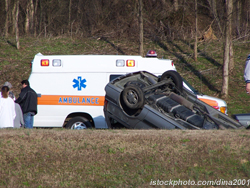 I am please today to report a $20.1 Million verdict in a motor vehicle accident wrongful death case against an electrical supply company and their employee driver. The verdict came back today from the Clayton County State Court jury.
I am please today to report a $20.1 Million verdict in a motor vehicle accident wrongful death case against an electrical supply company and their employee driver. The verdict came back today from the Clayton County State Court jury.
The case involved a 62 year old school teacher who suffered broken ribs when he was rear-ended by an electrical supply truck. The teacher was stopped at a red light when the truck crashed into him. While hospitalized he developed an ilieus and subsequent complications. He ultimately aspirated and died.
As it turned out the truck driver was driving a truck during the day and working nights at Wal-Mart. He was only getting 3-4 hours of sleep a night. The defendant company violated transportation regs by failing to ask him about other jobs he might be working. It took the driver a grand total of 3 weeks working two jobs before he killed someone.
 Atlanta Injury Lawyer Blog
Atlanta Injury Lawyer Blog























